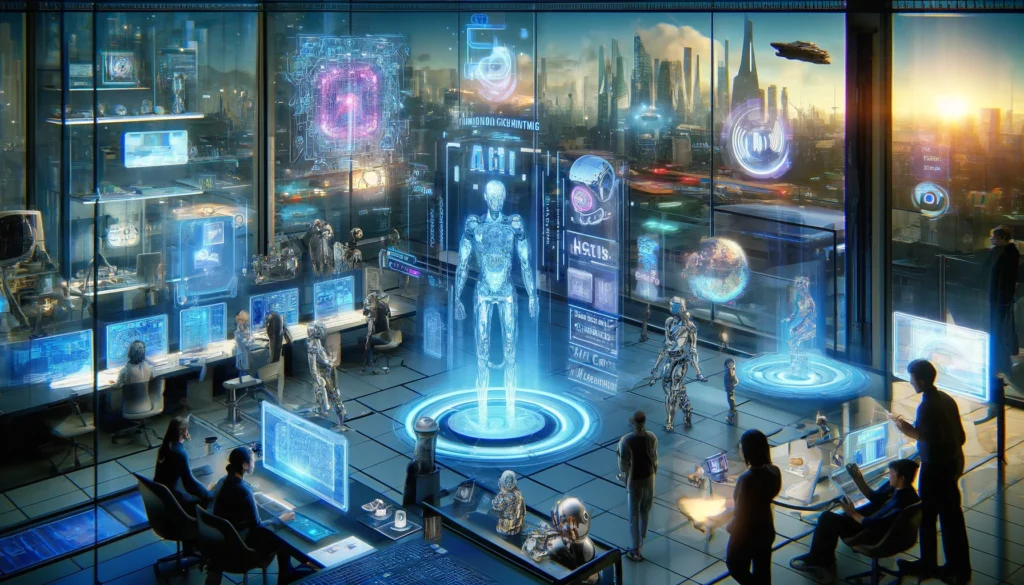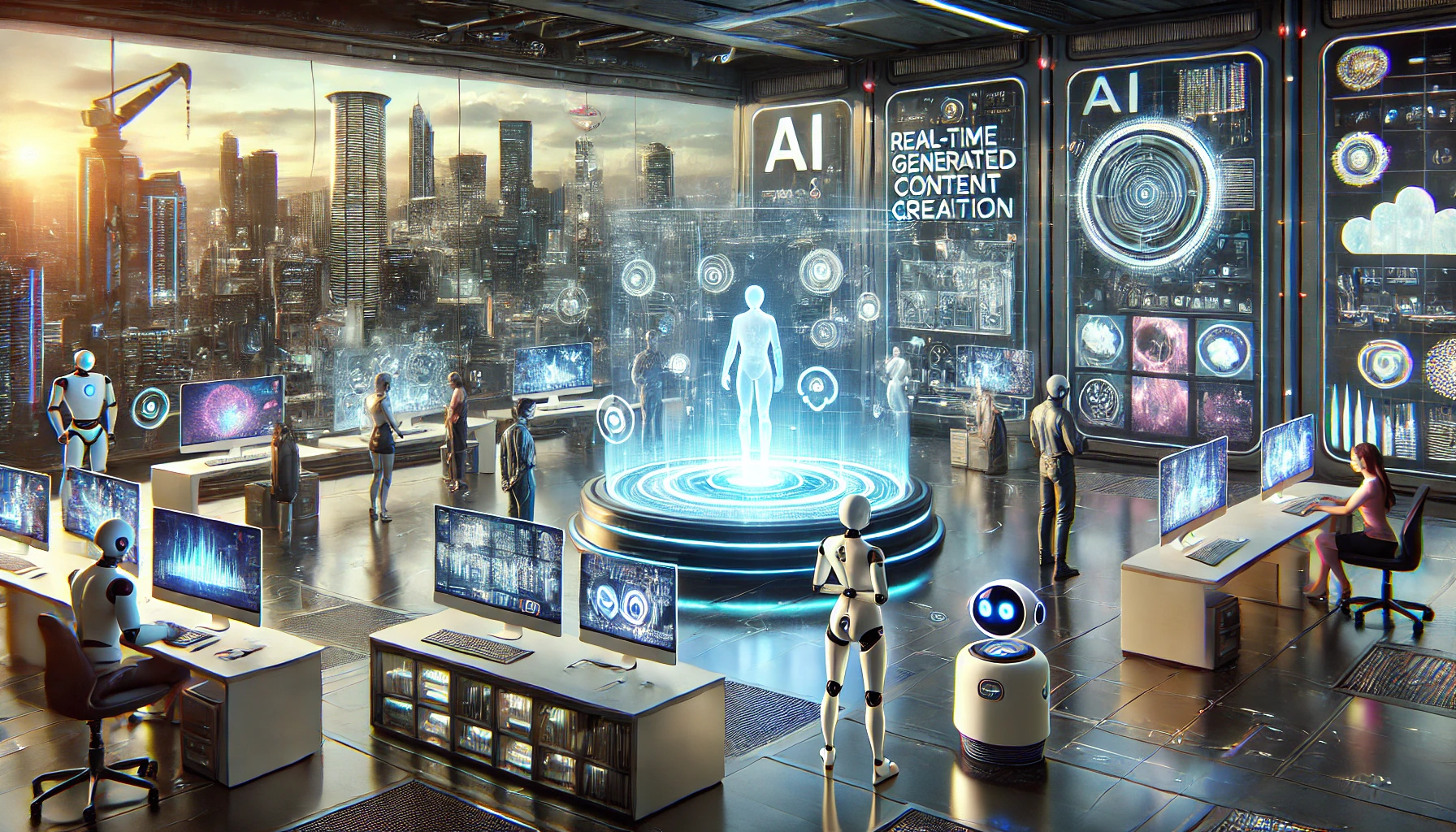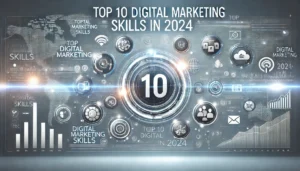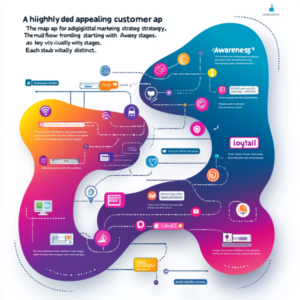As we approach 2025, AI-generated content is changing how businesses and people make, share, and use content. From blog posts and emails to video scripts and social media captions, AI is everywhere. But what exactly does AI-generated content mean for the future of content creation?
This article looks at how AI-generated content has changed. It discusses the benefits and challenges of this technology. It also examines how it will affect the future of content marketing.
What is AI-Generated Content?
AI-generated content includes written, visual, or audio materials that artificial intelligence algorithms produce. By using advanced machine learning models, these algorithms can mimic human-like writing, image creation, and even voice generation.
Tools like GPT-4 can create clear and detailed articles, reports, or product descriptions with little help from people. These AI-driven systems rely on vast datasets to learn language patterns and replicate human writing styles.

Evolution of AI Content Creation
AI content creation has come a long way. In its early days, developers limited AI to simple tasks like generating short, formulaic texts. Over time, however, AI models became increasingly sophisticated. With models like OpenAI’s GPT-4 and the soon-to-be-released GPT-5, AI can create detailed and relevant content.
AI can now produce various types of content, including academic papers and blog posts. In 2024, AI is more than just a tool; it actively collaborates in creating digital content.
Benefits of AI-Generated Content
AI-generated content has many benefits. It has changed how creators make content. This is especially helpful for businesses and creators who want to grow. Here are a few of the standout benefits:
1. Speed and Efficiency
AI tools can produce content at a breakneck pace. What used to take a human writer hours to research, draft, and edit, an AI can often achieve in minutes. This speed makes AI exceptionally useful for companies that need a lot of content fast. This includes blogs, product descriptions, and email marketing campaigns.
2. Cost-Effectiveness
Hiring content writers can be expensive, especially for large-scale projects. AI-generated content is a cost-effective alternative. After buying the software, the cost for each article goes down a lot. This makes AI a good choice for businesses with limited budgets.
3. Personalization
AI can tailor content for specific audiences more efficiently than humans. AI can analyze user data, such as browsing habits and preferences.
This helps it create targeted content. The designers create the content to connect with each user. This level of personalization can significantly enhance user engagement, turning one-time visitors into loyal customers.
Challenges of AI-Generated Content in 2025
Despite its many advantages, AI-generated content also faces several challenges, particularly when it comes to producing truly creative, authentic, and original material. Let’s explore some of these hurdles.
1. Lack of Creativity and Authenticity
While AI can produce impressive content, it still struggles with genuine creativity. AI-generated articles may feel mechanical or lack the unique voice that comes from human experience. Authenticity, in terms of storytelling and emotional depth, is another challenge that AI has yet to fully overcome.
2. Ethical Concerns and Plagiarism
AI’s reliance on vast datasets raises concerns about plagiarism. AI-generated content can sometimes mirror existing articles too closely, leading to unintentional plagiarism. The use of AI to replace human writers raises important questions. People are worried about the future of jobs in content creation.
3. SEO and Ranking Issues
Although AI can optimize content for SEO, there are still issues with ranking. Search engines prioritize high-quality, original content that offers value to users.
AI content is usually well-organized. However, it may not have the depth that search engines like. This can hurt a website’s SEO rankings over time.
AI vs Human Content Creation
The debate between AI-generated content and human-created content is a hot topic. Here are some of the key differences between the two:
- Depth of Thought
Human writers bring a level of critical thinking and analytical skills that AI struggles to match. AI can give data insights, but it cannot offer deep thoughts on topics needing emotions, experience, and complex thinking.
2. Tone and Emotional Appeal
Humans naturally infuse their writing with tone, humor, and emotional appeal, making content more engaging and relatable. AI can mimic tone, but it often fails to capture the subtle details that connect emotionally with readers.
Popular AI Tools for Content Creation in 2025
With the rise of AI-generated content, several AI tools have gained popularity among content creators and marketers. Let’s look at some of the most commonly used AI writing assistants in 2024:
1.GPT-4 and GPT-5
OpenAI’s GPT-4, and the anticipated GPT-5, remain frontrunners in the AI content creation space. These models generate highly coherent and contextually aware text, making them perfect for articles, blogs, and even technical writing. Their ability to learn from vast datasets gives them a distinct advantage over older models.
2.Jasper AI
Jasper AI is another popular tool in 2024, known for its user-friendly interface and high-quality outputs. With a few prompts, users can generate detailed articles, product descriptions, or social media content. Jasper’s focus on marketing makes it an essential tool for businesses looking to boost their content output quickly.
3.Copy.ai
Copy.ai offers versatile content generation, from blog ideas to ad copy. It excels in helping creators overcome writer’s block and offers a variety of tone and style options. Many people widely use Copy.ai for short-form content like email marketing and social media posts.
AI and SEO in 2025: Best Practices
AI can do more than just generate content; it can also help optimize that content for search engines. Here are some best practices for using AI to boost your SEO in 2025:
1.Keyword Optimization
AI tools can analyze and recommend the best keywords for content. AI insights help content creators focus on important search terms. This allows them to rank higher on search engine results pages (SERPs).
2.Voice Search Optimization
More people are using voice search tools like Alexa and Siri. Making AI-generated content easy to find with voice search is important. AI can help craft content that aligns with how.
3.Content Structuring for AI
Search engines, especially Google, value structured content. AI helps organize content.
It creates clear paragraphs, bullet points, and headings. This makes the content easier to read and improves SEO. Additionally, AI tools can assist in optimizing metadata for improved visibility.
Future of AI-Generated Content Beyond 2025
As we look beyond 2025, AI-generated content will continue to evolve. The future promises exciting advancements and integrations that will make AI even more indispensable.
1.Advancements in AI Models
Future AI models will become even more refined, allowing for deeper contextual understanding and more sophisticated outputs. AI will create content that looks and feels more like what humans make. This will make the difference between human and machine work smaller.
2.Integration with Other Technologies
AI-generated content will increasingly integrate with other technologies like augmented reality (AR) and virtual reality (VR). This fusion will allow for more interactive and immersive content experiences, changing how we consume information online.
Conclusion: The Impact of AI on Content Creation
AI-generated content is here to stay, and its influence will only grow in the coming years. While it offers undeniable benefits in terms of speed, cost, and personalization, it still faces challenges, especially when it comes to creativity and authenticity. Balancing AI with human input will be key to ensuring the future of content remains engaging and relevant.
FAQs
1.Is AI-generated content reliable for SEO?
AI-generated content can be better for SEO. However, it is important to check and edit it. This ensures it meets search engine requirements and provides value to readers.
2.Can AI-generated content replace human writers?
AI can do many writing tasks, but it lacks the emotional depth and creativity of human writers. It also does not have the same level of critical thinking. A balance between AI and human input is often the most effective approach.
3.What are the ethical concerns surrounding AI content?
Ethical issues involve possible plagiarism, job loss for writers, and the risk of AI creating false or harmful information.
4.How does AI help with content personalization?
AI can study how users behave and what they like. It can then create content just for them. This way, each user gets information that matches their interests and needs.
5.Will AI content creation tools become more advanced?
Yes, AI tools are always improving. Future models will likely have better skills. They may show more creativity and understand context better. They could also work with new technologies like AR and VR.




